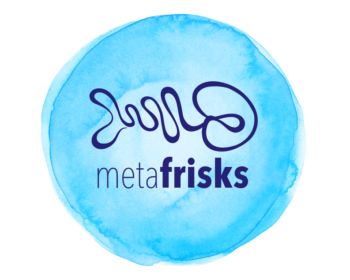State of the art
Many populations globally depend on fish as part of their daily diet as fish and seafood are healthy components of human nutrition providing many essential nutrients. The numerous health benefits provided by fish consumption may be compromised by the presence of toxic metals and metalloids such as Pb, Cd, As and Hg, which can have harmful effects on the human body if consumed in elevated quantities. Until recently, risk assessments for metals and metalloids and estimations of nutritional values of minerals were based exclusively on total concentrations. It has become apparent, however, that this is no longer a valid approach as it has been shown that different species of the same metal (As, Hg, etc.) may exhibit vastly different chemical and/or toxicological properties. It is therefore imperative that the concentration of the individual metal species present in a food sample be determined in order for more accurate risk and benefits assessments to be possible. Metal speciation analysis is the procedure of identifying and quantifying individual forms of a particular metal, at the trace level. Moreover, various external (marine environment) and internal (fish parameters) factors can lead to variation in metal accumulation and inter-metal correlations within and among fish species, locations and seasons. Consequently, metal speciation in fish depends on biological, environmental and seasonal factors.
Aims
The MetaFRisks (Advanced Metallomics Analysis in Fish for Improved Assessment of Human Risk and Environmental Quality) project aims to determine the metal speciation in Greek fisheries (wild and farmed fish) and to investigate the biological and environmental factors that may be associated with metal species content and their transformations. Knowledge of metal speciation is imperative in order to make more reliable assessments of human health risks and benefits from fish consumption. This project focuses on the detailed elemental speciation analysis of various metals (Hg, Sn, Cr) and metalloids (As, Se), as well as, size fractionating other biologically relevant metals such as Zn, Cu, Fe, Co into low and high molecular weight species
The research methodology of the MetaFRisks project focuses on four main directions: (1) setup, optimize and validate analytical methods suitable for the identification of the chemical species of metals, and metalloids in edible fish parts, sediment, and seawater; (2) identify and quantitate the metal species present in edible parts of wild fish (demersal, pelagic) and investigate their relationship to relevant biological (fish species, size, protein and lipid content, spawning period) and environmental (sampling location and fish habitat) parameters; (3) determine metal species in the edible tissues of farmed fish and investigate the influence of season, temperature and substrata type (oxic/ anoxic) on elemental speciation; and (4) assessment of health risks and benefits for Greek populations from the consumption of fish (wild and farmed) from the Greek marine environment. Such risk and benefits assessments of metals and micro- and macro-minerals will be based on actual metal species and levels found in the fish.
Supporting facilities and infrastructures
This MetaFrisks project is a collaboration between the Hellenic Centre for Marine Research (HCMR), which participates with two research Institutes, the Institute of Oceanography (IO) and the Institute of Marine Biological Resources and Inland Waters (IMBRIW), and the Department of Chemistry of the University of Crete (UoC). Both partners have excellent reputation and academic records in marine research and fisheries (HCMR) and analytical chemistry (UoC).
HCMR has significant and long experience on marine research and oceanographic chemistry (IO) and on fisheries (IMBRIW). It has fully equipped laboratories for fish identification and dissection, for the analysis of organic matter, nutrients and chlorophyll-a in environmental samples, for analysis of lipids and proteins in fish tissues, and for pre-treatment of biological samples. It also has a research vessel for samples collection.
Environmental Chemical Processes Laboratory (ECPL, Department of Chemistry, UoC) will contribute to the development and validation of analytical methods for the metal speciation analysis, and the determination of metal species in fish. The ECPL has long experience in the development of state-of-the-art analytical techniques that allow for the advanced study of metal species’ chemistry and biochemistry as it relates to environmental and biological systems.
Funding
The MetaFrisks project is supported by the Hellenic Foundation for Research and Innovation (HFRI) under the “2nd Call for H.F.R.I. Research Projects for the support of Post-doctoral Researchers”. The project was submitted in the field of Agricultural Sciences–Food Science & Technology – Food chemistry (Project ID: 692) and it will receive a total budget of 169,775 € for 3 years (2020-2023).
